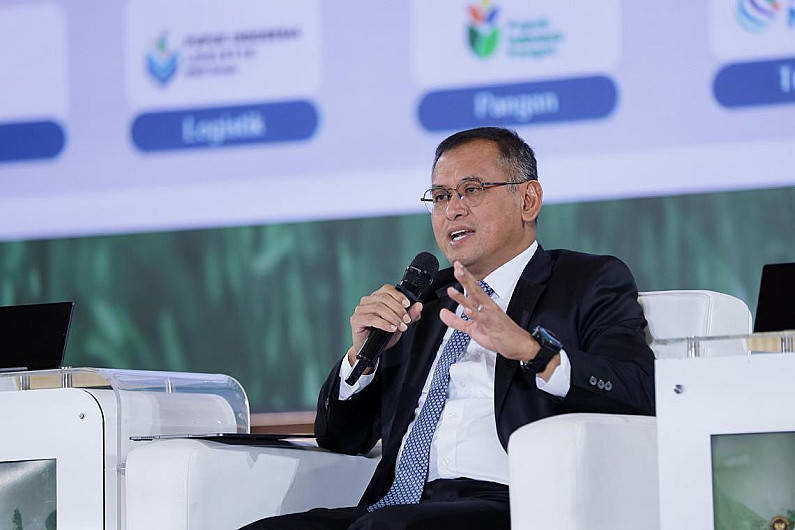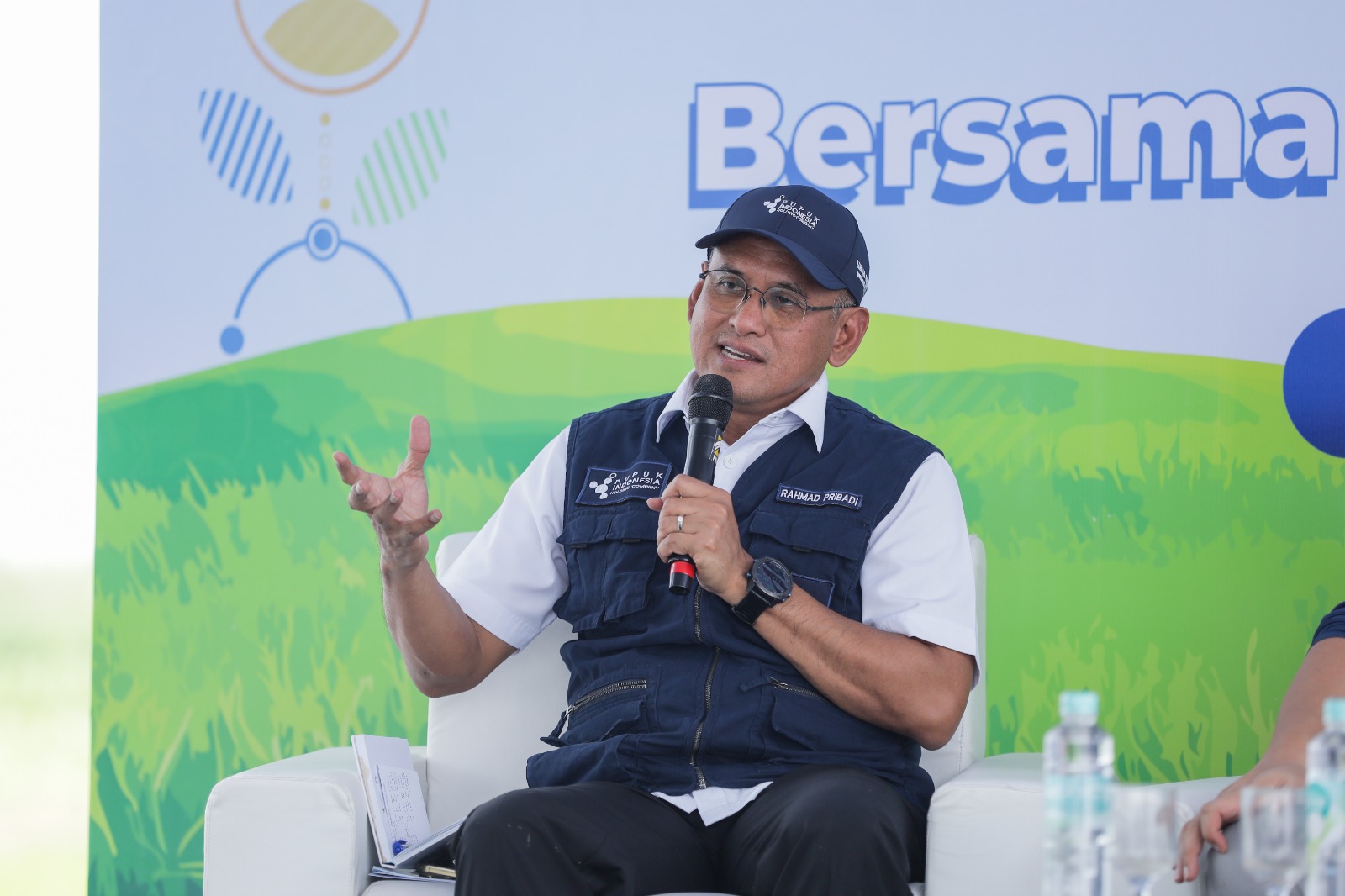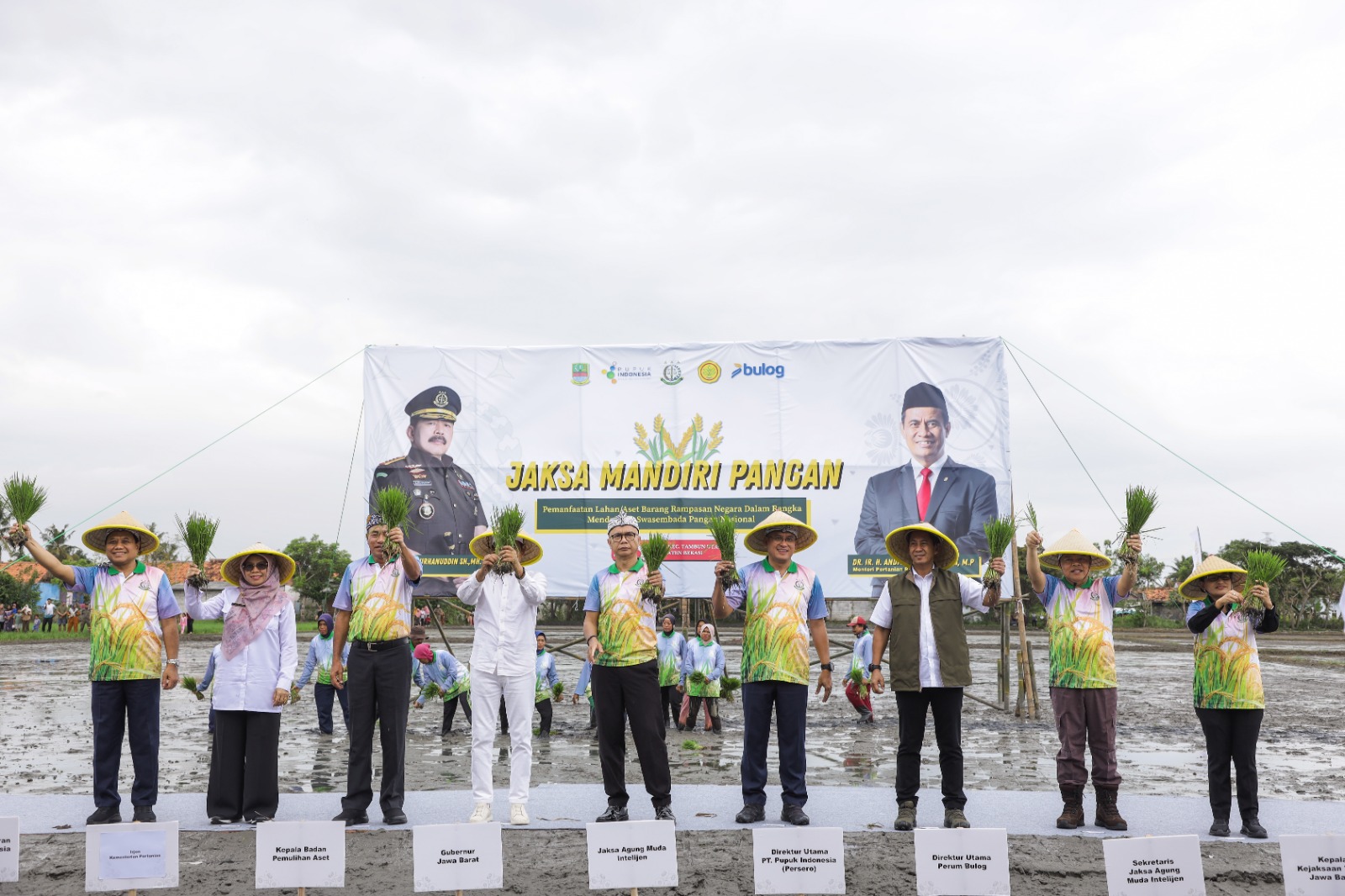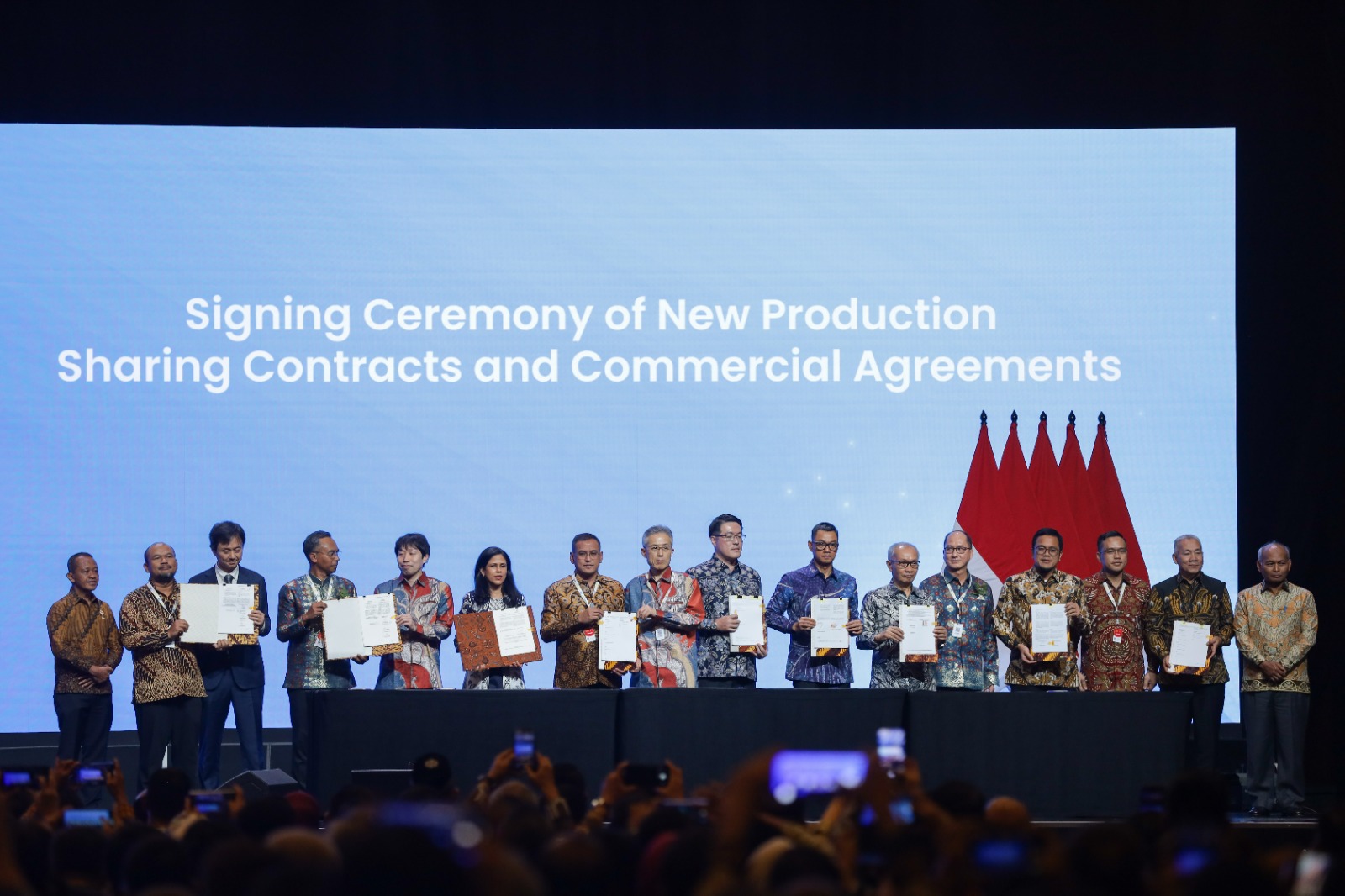Dukung Swasembada Pangan, Pupuk Indonesia Genjot Kapasitas Produksi

Jakarta, 21 Maret 2025 - PT Pupuk Indonesia (Persero) berkomitmen penuh mendukung program prioritas pemerintah dan Kementerian Badan Usaha Milik Negara (BUMN) untuk mencapai swasembada pangan. Salah satu upaya nyata yang dilakukan Pupuk Indonesia untuk mendukung program itu adalah melalui mega proyek pembangunan Kawasan Industri Pupuk Fakfak di Kabupaten Fakfak, Papua Barat.
“Pupuk Indonesia akan melakukan investasi sebesar Rp 116 triliun untuk mengembangkan kapasitas produksinya. Sebagian dari dana investasi itu akan kami gunakan untuk membuka kawasan industri pupuk baru, yaitu mega proyek kami di Fakfak, Papua Barat dan itu Insya Allah akan menambah kapasitas produksi kami,” kata Direktur Utama Pupuk Indonesia Rahmad Pribadi di Jakarta dikutip, Kamis, (20/3/2025).
Rahmad mengatakan penambahan kapasitas produksi ini merupakan langkah penting untuk bisa memastikan ketersediaan pupuk yang amat dibutuhkan untuk mencapai swasembada pangan. Menurut dia, pencapaian swasembada pangan suatu negara berkaitan erat dengan kondisi industri pupuk di negara tersebut. Indonesia, kata dia, merupakan salah satu contoh nyata sebuah negara yang pernah mencapai swasembada pangan karena fokus mengembangkan industri pupuknya.
Rahmad bercerita Indonesia berhasil mencapai swasembada beras pertama kali pada tahun 1984. Pencapaian itu, kata dia, tak terlepas dari pembangunan industri pupuk yang pertama kali dimulai tahun 1959 di PT Pupuk Sriwidjaja Palembang (Pusri) hingga pembangunan PT Pabrik Iskandar Muda (PIM) di Aceh pada 1982.
“Di tahun 1984 Indonesia itu mencapai swasembada beras dimulai dengan gerakan pembangunan industri pupuk tahun 1959 di Pusri,” ujar Rahmad.
“Sejak 1982 sampai sekarang belum ada pembangunan kawasan baru, padahal di tahun 2045, penduduk Indonesia akan tumbuh menjadi 324 juta jiwa, itu artinya kebutuhan beras nasional akan mencapai 37 ton atau naik 6 juta ton,” lanjut Rahmad.
Rahmad menekankan bahwa peran pupuk dalam meningkatkan produktivitas pertanian sangatlah vital. Pupuk berkontribusi sekitar 62% terhadap produktivitas pertanian. Oleh karena itu, pencapaian swasembada pangan akan sangat sulit tercapai tanpa ketersediaan pupuk yang cukup.
"Jadi super signifikan. Oleh karena itu, kunci dari meningkatkan produktivitas pertanian itu, salah satu yang utama adalah memastikan ketersediaan dan keterjangkauan pupuk.," ujar Rahmad.
Selain memastikan kapasitas produksi, Rahmad mengatakan Pupuk Indonesia juga mendukung swasembada pangan dengan memastikan keterjangkauan pupuk bagi petani. Keterjangkauan pupuk, kata dia, salah satunya dilakukan dengan memastikan distribusi pupuk bersubsidi yang andal dan akuntabel.
Untuk mencapai hal itu, Pupuk Indonesia telah melakukan digitalisasi kios melalui i-Pubers yang memudahkan penebusan dengan KTP, serta pengawasan secara real-time melalui command center untuk penyaluran tepat sasaran.
“Jadi kami sudah mengimplementasikan digitalisasi di seluruh kios yang mencapai 27 ribu lebih, dengan digitalisasi kami sudah bisa melihat setiap ‘butir’ pupuk yang dimuat di kapal, itu kita bisa lihat datanya, bisa kita lihat visualnya, kapalnya bergerak ada GPS-nya, kemudian masuk ke gudang-gudangnya ada CCTV-nya, dibawa oleh truk-truknya, ada GPS sampai ke kios,” kata dia.







